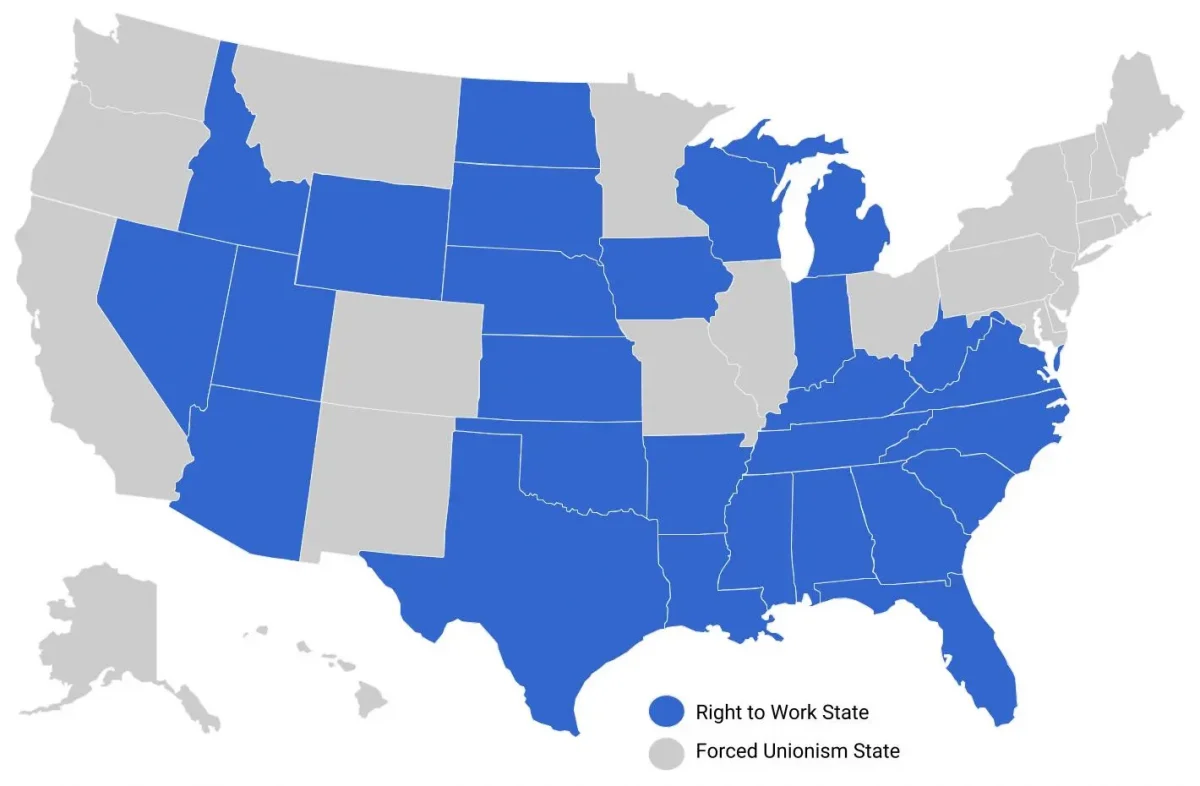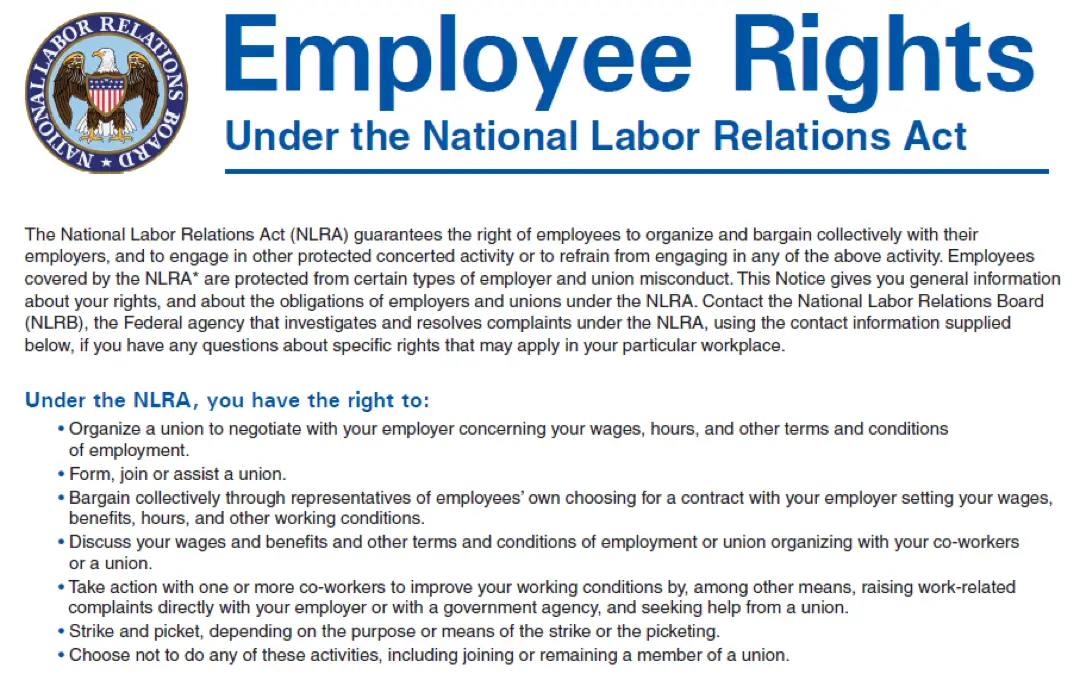The term “right to work” is tossed around a lot in the media and by politicians, but what does it actually mean? Is Tennessee really a “right to work” state?
While it is true that this is a right to work state, federal civil rights laws are still in place, and employers can be prosecuted for violations. This means that employees in Tennessee still have the right to form or join a union, and employers cannot retaliate against employees for doing so.
This article will explain what “right to work” actually means, and dispel the myth that Tennessee is a completely “right to work” state.

What does “right to work” actually mean?
The term “right to work” refers to laws that protect employees from being forced to join or pay dues to a union as a condition of their employment. These laws give employees the freedom to choose whether or not they want to be part of a union.
Right-to-work laws do not ban unions outright, but they make it more difficult for unions to operate and maintain their membership. This is because unions rely on the dues paid by members in order to function.

Image Source: ntrw.org
In a right-to-work state like Tennessee, unions are still allowed to exist and collect dues from willing members. However, they cannot require all employees to pay dues or join the union as a condition of employment.
So while Tennessee is technically a right-to-work state, federal laws still protect employees’ rights to form or join a union. Employers cannot retaliate against employees for doing so.
What about civil rights laws?
In addition to the federal laws that protect employees’ right to form or join a union, there are also civil rights laws that protect employees from discrimination and harassment in the workplace.
These laws make it illegal for employers to discriminate against employees on the basis of race, color, religion, sex, national origin, age, disability, or genetic information. They also protect employees from harassment on the basis of any of these protected characteristics.
Some of the most well-known civil rights laws are the Civil Rights Act of 1964, the Equal Employment Opportunity Act of 1972, and the Americans with Disabilities Act of 1990.
In addition, on June 27, 2018, the U.S. Supreme Court ruled in Janus v. AFSCME that non-union government workers could not be required to pay union fees as a condition of working in public service.
These laws apply to all employers in Tennessee, regardless of whether or not the state is a right-to-work state. This means that employers in Tennessee can be prosecuted for violating these laws, even if the state is a right-to-work state.
What does this all mean for employees in Tennessee?
Employees in Tennessee still have the right to form or join a union, and employers cannot retaliate against employees for doing so. However, because Tennessee is a right-to-work state, employees are not required to join or pay dues to a union.
This status can be confusing for some people, as it seems to contradict federal laws that protect workers’ rights to organize, such as the National Labor Relations Act of 1935.

The National Labor Relations Act (NLRA) is a federal law that protects workers’ rights to form or join a union. The NLRA applies to all employers in the United States, regardless of whether or not the state is a right-to-work state.
This means that, even though Tennessee is a right-to-work state, employees in Tennessee are still protected by the NLRA. Employers in Tennessee cannot retaliate against employees for exercising their rights under the NLRA.
On the other hand, because Tennessee is a right-to-work state, unions in Tennessee cannot require all employees to join the union or pay dues. This can make it more difficult for unions to function and maintain their membership.
So, while workers in Tennessee still have the right to form and join unions, they are not required to do so. And, because unions are not as prevalent in right-to-work states, workers may find it more difficult to get the benefits and protections that come with union membership, such as:
- higher wages
- better working conditions
- health insurance
- retirement benefits
- collective bargaining
So, while Tennessee is technically a right-to-work state, employees should be aware of their rights and protections under federal law. And, if they are considering joining a union, they should weigh the pros and cons carefully before making a decision.
If you have any questions about your rights as an employee in Tennessee, or if you believe your employer has violated your rights, contact an experienced employment law attorney for help.
Our HMC Civil Rights Attorneys team has a long history of fighting for the rights of workers in Tennessee, and we are here to help you stand up for your rights. Contact us today for a free case review.







